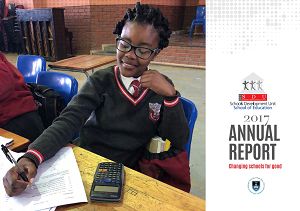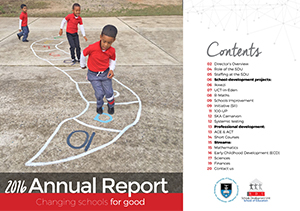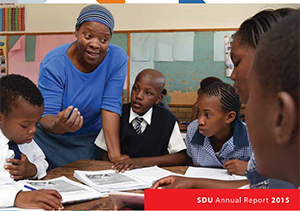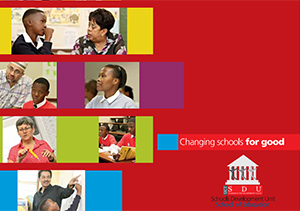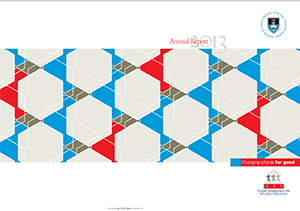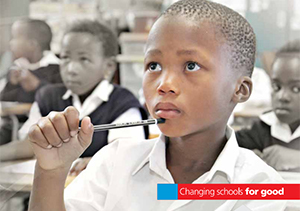The Schools Development Unit was established in 2000 with the goal of improving teaching and learning in the South African school system. As a department in the University’s School of Education it draws on academic
teaching and research expertise to help tackle the systemic and structural challenges that scar our education landscape and manifest in poor or inadequate teaching and learning. Through teacher development, schoolsbased interventions, professional consulting services and dynamic materials, the SDU works to close the achievement gap between well-resourced and disadvantaged schools.
While based in the Cape Town Metropole, we work across all eight education districts in the Western Cape as well as in the Northern Cape. Our reach extends to work across all grades and phases of formal schooling via
a range of interventions which vary from working in individual schools to spanning the entire Western Cape.
Our guiding principles are
- What happens in schools can and does make a difference
- Teachers have the most significant positive impact on schooling outcomes, especially in poor communities
- Developing teacher expertise means sustainable learner development over generations
- School leadership & management is crucial to learner and school success
Our teacher professional development approach features a combination of university qualifications and
approved courses and over 50 South African Council of Educators (SACE) endorsed short courses. These are
applied in tandem with school-based support, to help teachers apply what they’ve learned in the classroom.
Our school-based work supports teachers, both individually and collectively, and learners.
By working at an individual, collective and province-wide level, we focus on the promotion of quality teaching
and learning across all grades and phases of formal schooling, from Grade R to Grade 12. This, we believe, is
critical for South Africa’s long-term stability and economic development.
ARCHIVE:
|
|
||
|
|
|
|
|
|
|
|
| Annual Report 2011 | Annual Report 2010 | Annual Report 2009 |
| Annual Report 2008 |


